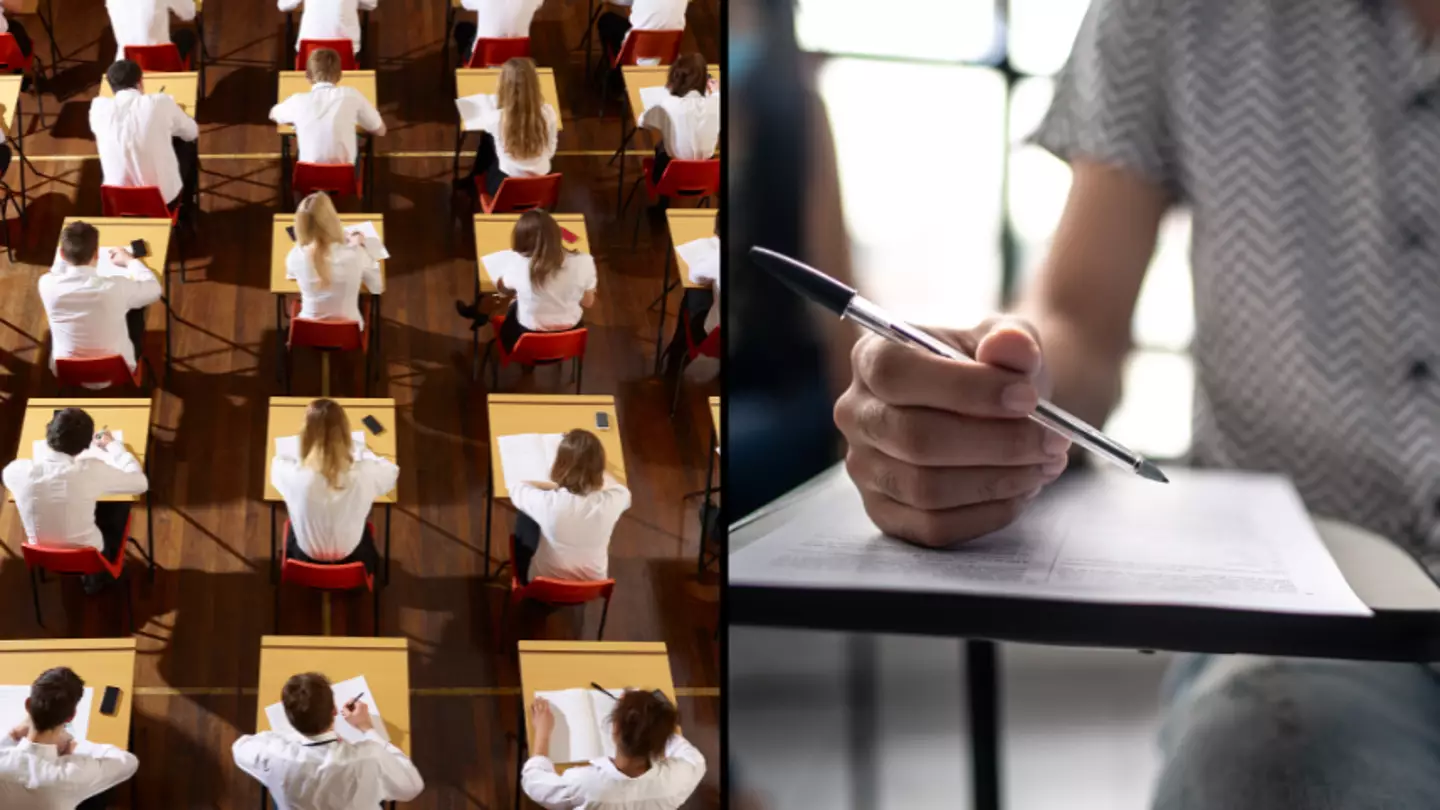
We all remember that rumour during GCSEs and A Levels, don't we? That if someone took one for the team and keeled over and died in the exam hall, everyone would automatically get a pass.
Seriously, how horrible were we as kids?
Without knowing, all this time it seems we were following the 'pass by catastrophe' myth.
The popular urban legend was widely accepted as truth among school kids, and was based on the idea that if something terrible happens to someone, everyone else would benefit.
Advert

An example - if an earthquake occurs during a final exam, everyone passes.
Or if the university burns down, everyone gets a free degree.
I'm sure you can see where I'm going with this and certainly in the UK, 'pass by catastrophe' is not a real thing.
According to the Joint Council for Qualifications, the only way your mark will change in an exam is because of 'special consideration', which is a post-examination change 'to a candidate’s mark or grade to reflect temporary illness, temporary injury or some other event outside of the candidate’s control at the time of the assessment'.
Advert
"The size of the allowance depends on the timing, nature and extent of the illness or misfortune," they explained.
"The maximum allowance given will be five percent of the total raw marks available in the component concerned, including coursework/non-examination assessment."

As an example, the maximum change in your grade would be just a five percent increase.
That's only for the most exceptional cases, such as:
Advert
• terminal illness of the candidate;
• terminal illness of a parent/carer;
• death of a member of the immediate family within two months of the examination
• very serious and disruptive crisis/incident at or near the time of the examination (which would probably include someone dying in the exam hall).
Also, if you are ill on the day of examination and have to miss the exam, you won't get any special treatment and will be forced to resit.
Advert
The Joint Council added: "Special consideration can only seek to go some way to assist a candidate affected by a potentially wide range of difficulties, emotional or physical, which may influence performance in examinations.
"It cannot remove the difficulty faced by the candidate. There will be situations where candidates should not be entered for an examination.
"Only minor adjustments can be made to the mark awarded because to do more than this would jeopardise the standard of the examination."
So dying in the exam hall won't give your classmates an automatic pass after all.